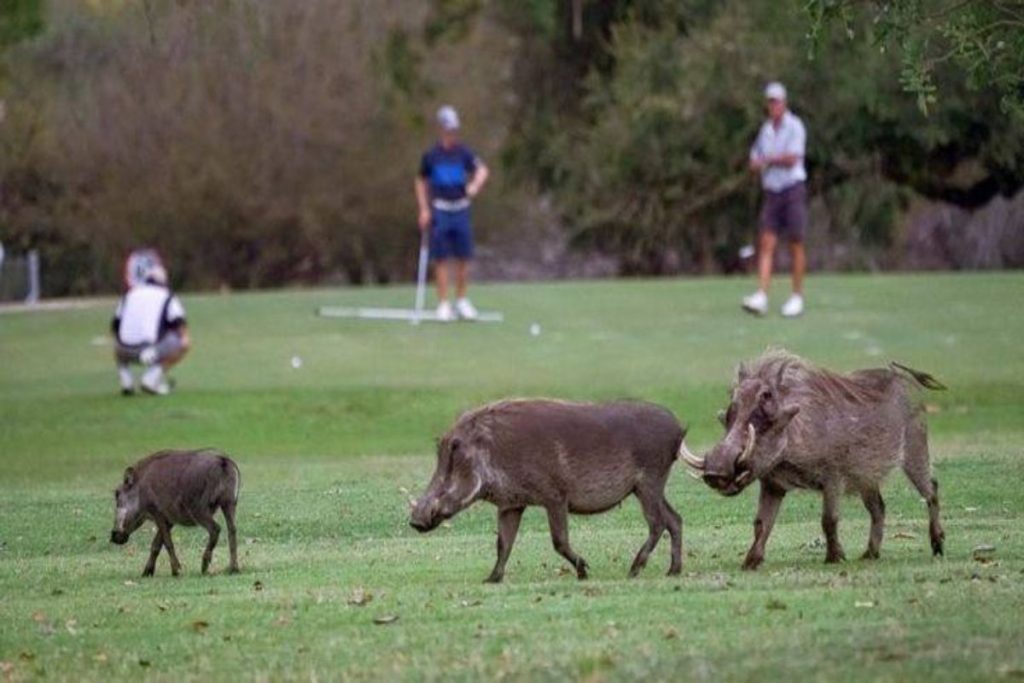While Arizona slept at night, a squadron of pig-like creatures entered an unsuspecting golf course. In true animal fashion, the pig-like creatures left their mark behind. And when the Arizona sunshine shone over Seven Canyons in the morning, the destruction was revealed.
Sprawling mounds of ravaged turf blot the 7,000–yard course like open wounds. The soil and grass scattered in all directions across the once-perfect terrain. The perpetrators are Javelinas, pig-like creatures with raking canine teeth.
Their capacity for chaos has seen them become a viral sensation overnight. “When you come upon them and see them, it’s like The Tasmanian devil,” Seven Canyons general manager Dave Bisbee told CNN.
Pig-like, but not pigs, Javelina, also known as collared peccary or musk hogs, are members of the peccary family. They are a mammal species originally from South America before venturing into Arizona and other Southwestern states of the US. With a white collar ringing grey-black fur, Javelina typically grows three to four feet long and 19 inches tall.
According to the Arizona State Department of Game and Fish, Javelinas weigh between 40 and 60 pounds. In addition, they have a seven-and-a-half-year average life span. While they are common in desert areas, they are adaptable to various habitats.
Also, they have a predominantly herbivorous diet of cacti, bulbs, and other plants. However, they will also eat garbage, insects, and, fortunately for Seven Canyons staff, worms. Classified as a big-game species, it is illegal under state law to injure or take the life of a Javelina.
Even if they are causing a problem, removal by the Arizona Game and Fish Department is strictly a last resort. Also, most Javelina don’t survive forced relocation and are prone to being killed by a predator following separation from their herd.
Consequently, not feeding the animals and keeping them out, using fencing and walls, are ways to discourage their presence. Despite these measures, it could be a long few weeks ahead for Seven Canyons staff as December signals the beginning of the non-growing season. Hence, the course will be in that condition until springtime.
Since falling temperatures push the worms deeper into the soil, away from the Javelina’s keen sense of smell, Seven Canyons has endured the worst assault. Also, there will be financial scars for the golf course owners. Bisbee estimates that the club will spend around $300,000 in labor costs and restorative equipment before the Javelinas back away.
Yet, there was a silver lining to the chaos: viral fame. Bisbee was in a board meeting when his phone buzzed incessantly in his pocket. He feared the worst after seeing the message, “Oh my god. I’m so sorry,” from the course’s assistant superintendent, Emily Casey, atop the missed call notifications.
Hours earlier, Casey had posted a video of the Javelina’s latest dose of destruction to X. Although it was a mere 30-second clip and by no means her first post of such damage, it spread like wildfire. By the time Bisbee responded, the video had 1.4 million views. Three weeks later, it’s at 32.9 million and counting.
